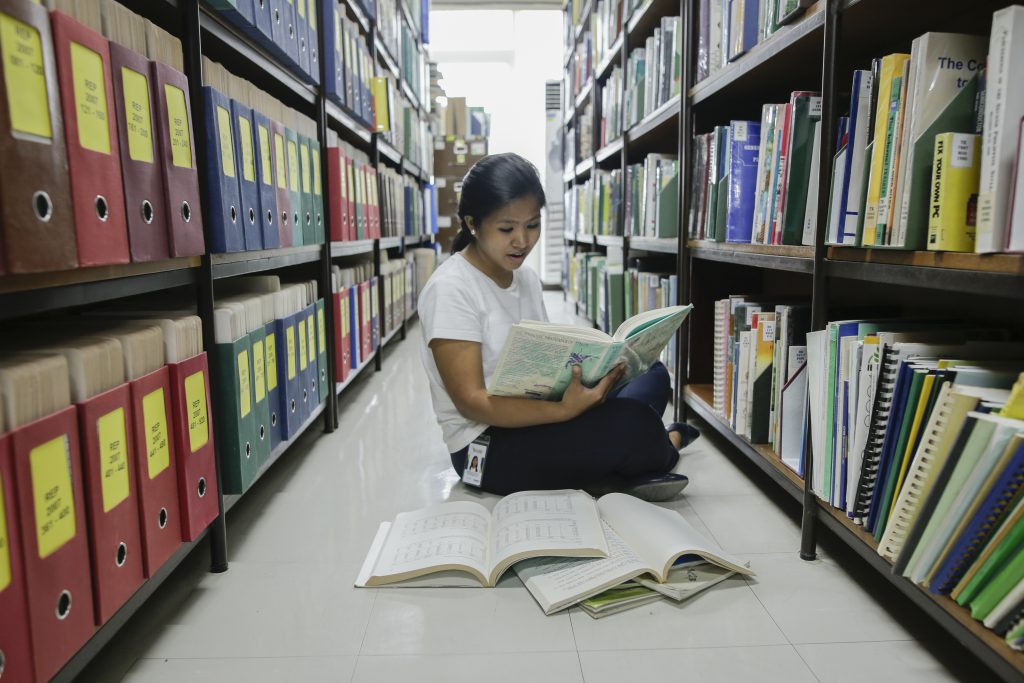
“Thesising” millennial? Researching for grad school or work? Or are you simply a reading junkie? Try visiting the PhilRice library and you might be surprised on how useful and interesting are its acquisitions and services.
Remote and physical access
Non-PhilRice staff who wishes to explore the library contents can first go to its OPAC (Online Public Access Catalog) to scan for books and use xCardBox, an online cataloguing system, for serials. They can also access some of the published journal articles of PhilRice researchers. Books and serials can then be accessed personally in the PhilRice library in Nueva Ecija.
At present, library’s active journal subscription only covers ProQuest Agriculture, and it can be accessed in the physical library. Aside from accessing these references, library visitors could also get talk to PhilRice researchers who authored some journals found in the online library catalogue should they would like to find out more about it.
Online references
The internet can be a very chaotic platform for reputable references hunt because search results do not necessarily sort which ones are credible or not. PhilRice library could come handy in sorting references with its succinct, though not exhaustive, list of online references and research tools.
The list contains links to journal indices. The best part is that you don’t have to worry about getting substandard sources because the list was collated by trusted librarians.
So the next time you find yourself struggling to identify the prestige of a journal article you just downloaded, you can use this list to countercheck. Links to free books, open access journals, and Philippine public development-oriented studies are also listed under online references.
Citation tools
Researchers should be fastidious, and ensure that their work is plagiarism-free. It’s not just about empty stickling; it’s also about giving due credit to the authors consulted in writing the research. But despite ensuring citation accuracy and completeness, human nature steals away the desired perfection. Luckily, links to the citation organization tools such as Mendeley and Zotero are also found in PhilRice library website under the online references section.
Rice news clippings
Rice researchers can also access rare, if not exclusive, feature in the library – the rice news clippings. Library staff browse daily newspapers for rice-related contents and compile them. This is useful especially for students or researchers studying rice media coverage.
Library rules
Visiting researchers can borrow materials up to ten days, renewable unless reserved. Periodicals can be loaned up to three days. Overdue fee is P5/day. Visitors are also advised to bring an ID in borrowing materials. Dictionaries, encyclopedias, directories, almanacs, handbooks, guides, atlases, biographical dictionaries, statistical handbooks, and manuals are for room-use only.
Persons to contact Virginia Salvador, PhilRice Librarian II and Ms. Monica Pineda, Clerk III can be reached through (044) 456-0277 loc 315.




